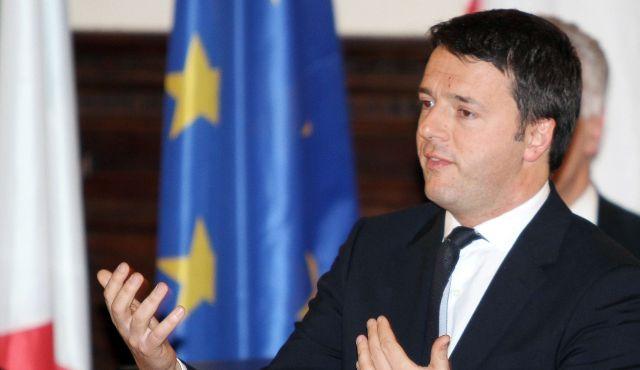After a resounding victory with a surprising 41% share of the vote in Sunday's European elections, Prime Minister Matteo Renzi, premier of centre-left Democratic Party (PD), thanked Italians for their trust during this morning’s press conference at Palazzo Chigi.
"Si è trattato di un voto di speranza straordinario, non di un referendum sul governo" ("It was an extraordinary vote in favour of hope, not a referendum on the government".) [...] "Il risultato di stanotte ci suggerisce che il cambiamento che abbiamo promesso deve arrivare in tempi ancora più veloci di quelli prospettati" ("Tonight's results suggest that the change we promised must come at an even faster pace than we planned for".)
After checking several times with his staff to make sure about the final data, he praised Italians for the biggest turnout in Europe. In fact, although Italy's turnout was down compared to five years ago, it was still far higher than the European Union average of 43.1%, reaching 57.22%
Considering that the election campaign was particularly marked with harsh language and verbal aggressions, Renzi invited all Italian MPs and future EMPs to lower the tone of the debate: 'bisogna abbassare i toni e alzare le ambizioni', use a less aggressive language and be more ambitious when it comes to achieving political results.
Finally, he explained that while the Democratic Party is extremely happy for this unprecedented victory (only the old Democrazia Cristiana party had reached similar results in the past), they feel the burden of a great responsibility, especially in view of the Italian semester of the European Presidency that will start on the 1st of July.
"Vogliamo arrivare al 1° luglio con umiltà, responsabilità e precisione". ("We want to get to July 1 with humility, responsibility and accuracy".)
According to many Italian political commentators, the magnitude of this victory gives Italy a new relevant role in Europe, especially in the light of Eurosceptic Le Pen's victory in France which undermines the France-Germany axis which has unquestionably represented the driving force of the EU so far.
Only two traditional parties have won in these European Elections: one is Merkel's Christian Democratic Union and the other one is the Democratic Party of Matteo Renzi.
Italy enters the European semester in a strong position that was never contemplated before Sunday, and Renzi can now aspire for Italy to replace France as Germany's main counterpart, creating an unprecedented North-South European axis.
There will also be consequences at a national level considering that comedian-turned-politician Beppe Grillo's anti-establishment, Eurosceptic 5-Star Movement (M5S), which expected to be the most voted party, landed about 21% of the vote, while ex-premier Silvio Berlusconi's opposition centre-right Forza Italia (FI) captured less than 17% of the vote.









